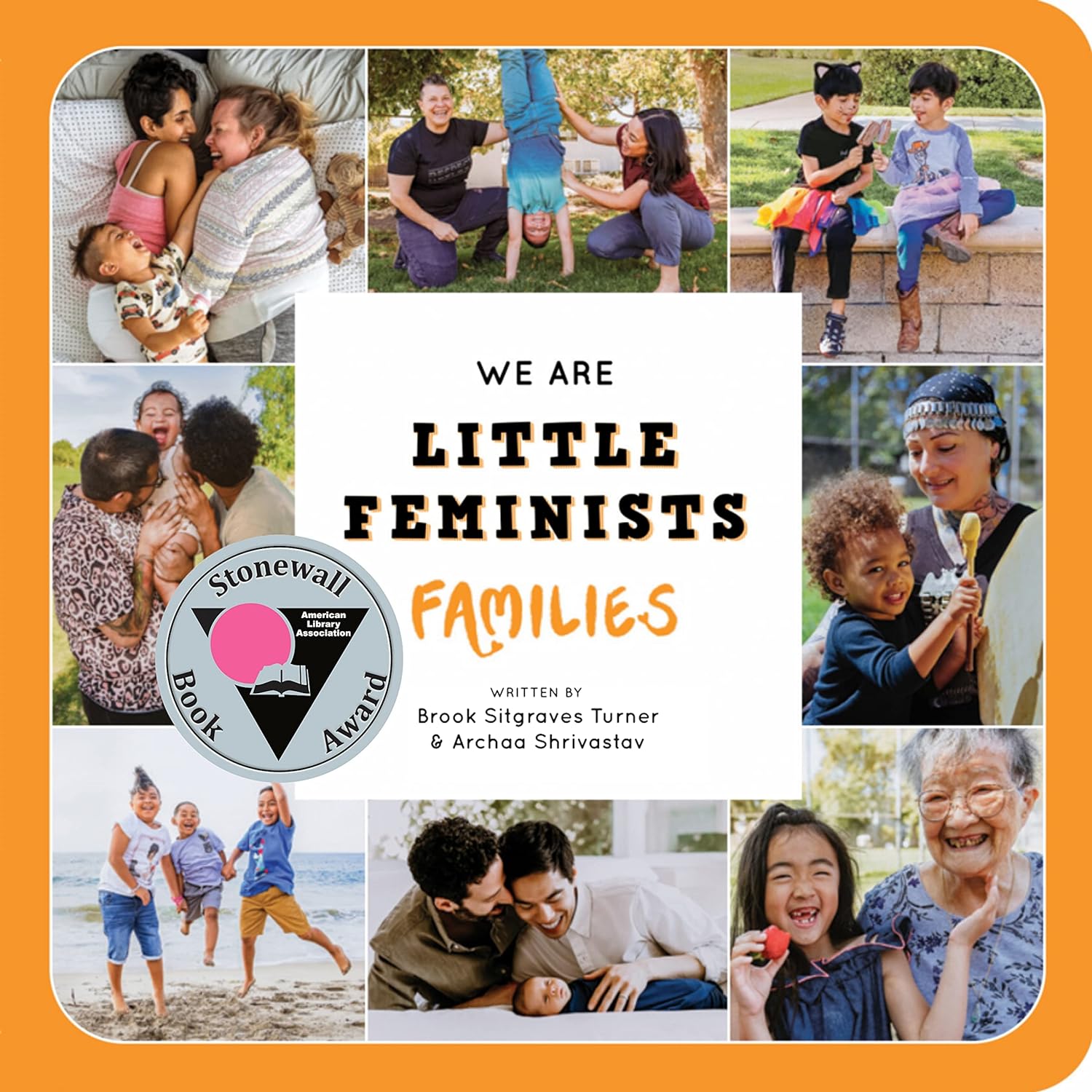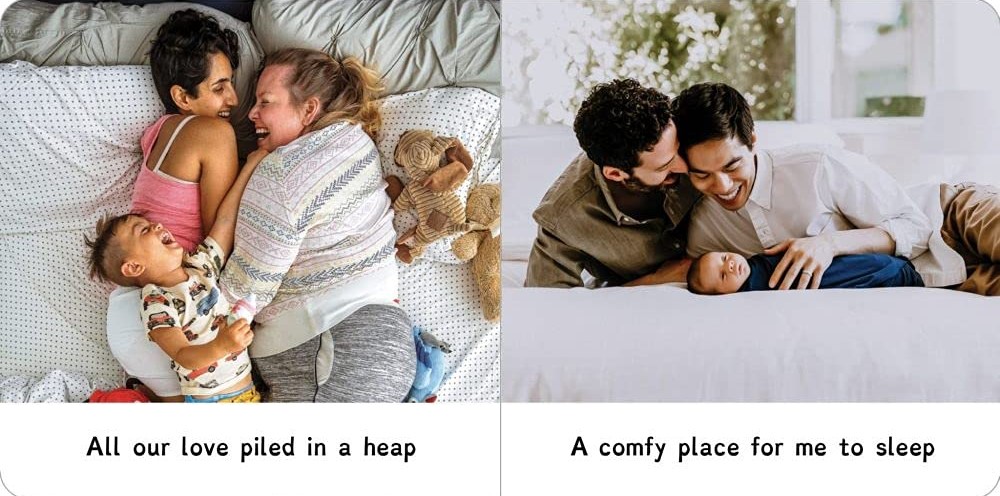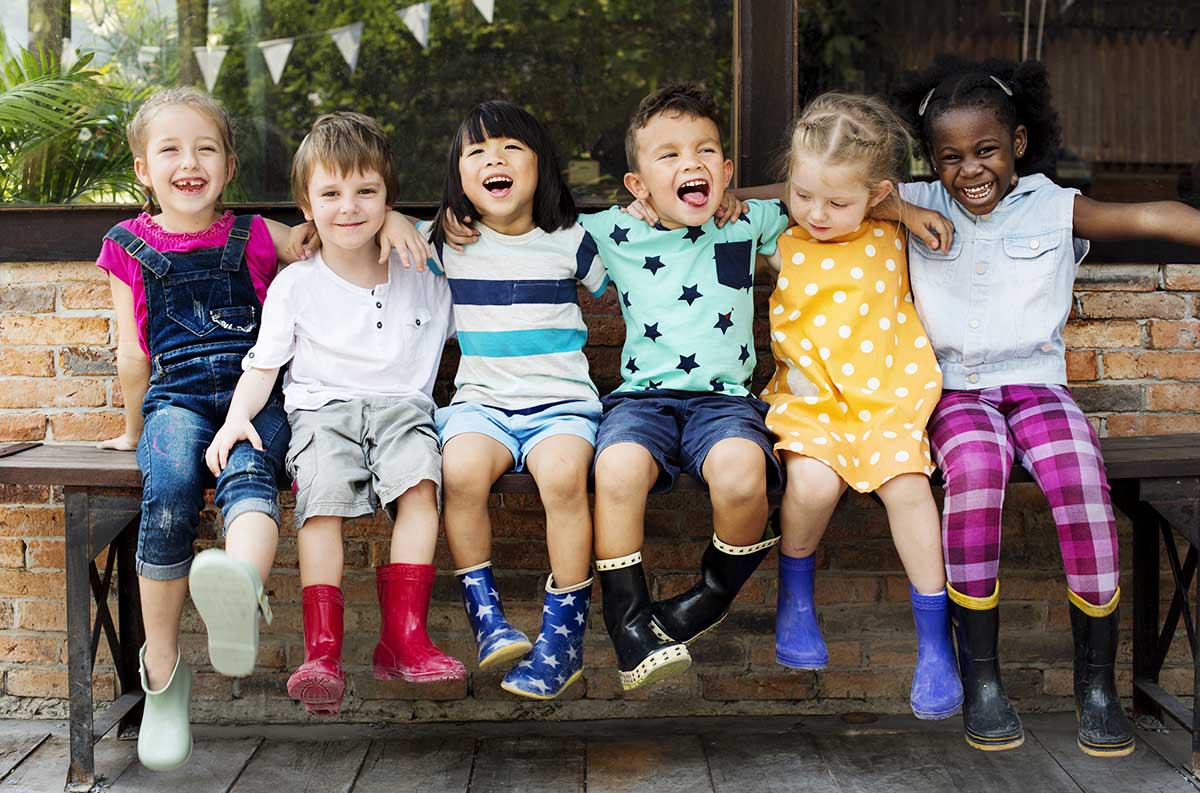
Inclusive Children's Book Teaching Guide
We Are Little Feminists: Families
What is this book about?
We Are Little Feminists: Families was the first-ever board book to win an American Library Association Medal.
“Understanding queer identities and representation can be this simple," the American Library Association noted in its review. "With joyful, expressive photos, delightful rhyming text, and an explicitly feminist and queer-positive lens, Families shows children 0–5 the true diversity of the world around them and the families to which they belong.”
Each spread features simple, poetic text conceived to help infants, toddlers and preschoolers begin to recognize real people in loving families that are similar to or different from their own. The book also introduces inclusive vocabulary words, fosters empathy in young children, and encourages families and educators to celebrate all genders as they advocate for LGBTQ+ equity.
This book is part of the We Are Little Feminists series, a collection of five identity-affirming board books created to help families and students learn about and take a stand against racism, sexism, homophobia, transphobia and ableism.
“These books are the most inclusive (and beautiful!) board books I have ever seen! Each board book is full of beautiful photos depicting all kinds of kids and families from all different backgrounds, traditions, ages, shapes, and skin tones. The accompanying text in each book is pragmatic and joyful, creating a board book that transcends age. Seriously. I read this set of books to my 4th graders and they were transfixed!”
― Matthew Winner, The Children’s Book Podcast
Who is depicted in this book?
- Children who transcend gender stereotypes
- LGBTQ+-led families, as well as other types of families
- This book includes a rare representation of a male-presenting pregnant trans person
What early childhood themes and concepts does this book explore?
- Various types of families (e.g., two moms or dads, blended, extended)
- How families show love and affection and spend time together
How does this book support anti-bias education?
This book celebrates a variety of family structures, offering children an opportunity to demonstrate family pride and show that they are comfortable with and confident about their own family structures.
Depending on how the book is shared or used—and the developmental level of the children—We Are Little Feminists: Families may be used to support the following core goal from Anti-Bias Education for Young Children and Ourselves:
Identity—Children will demonstrate self-awareness, confidence, family pride, and positive social identities.
How can this book be used to meet early childhood learning standards?
For all ages
Use We Are Little Feminists: Families to meet early childhood literacy standards
For children from birth to age three
Teaching suggestion: Point out familiar people and relationships in the families depicted in the book and model their names. To enhance the experience, you might also share this book near a classroom display of family photos.
What Illinois Early Learning Guideline does this meet for children from birth to age three?
Developmental DomainLanguage Development, Communication and Literacy
Standard: Receptive CommunicationChildren demonstrate the ability to comprehend both verbal and nonverbal communication.
Indicators for children:
- Recognizes and demonstrates understanding of familiar pictures, people and objects, such as saying “mama” while pointing to mother (16–24 months)
- Responds verbally and/or nonverbally to comments or questions while engaged in conversations with both peers and adults (21–36 months)
Teaching suggestion: Point out and model some of the ways that parents show love and care for their children (e.g., playing, making silly faces, dancing, bath time, sharing a treat) and encourage the children to imitate some of these gestures of love.
What Illinois Early Learning Guideline does this meet for children from birth to age three?
Developmental DomainSelf-Regulation
Standard: Emotional RegulationChildren demonstrate the emerging ability to identify and manage the expression of emotion in accordance with social and cultural contexts.
Indicators for children:
- Seeks out caregiver through physical actions (7–18 months)
- Seeks caregiver support when feeling overwhelmed by emotion (21–36 months)
For preschoolers (ages three to five)
Teaching suggestion: Invite the children to talk about similarities and differences in family structures. For instance, you might ask: "Who is in your family? What is the same and different among families? What is something great about your family?"
What Illinois Early Learning and Development Standards does this meet for preschoolers?
Social Studies Standard18BDevelop an awareness of self within the context of family.
Benchmark 18.B.ECa:
Understand that each of us belongs to a family and recognize that families vary.
Teaching suggestion: Invite the children to ask questions such as: "Who can carry a baby? Can we figure out a person's gender just by looking at them?"
What Illinois Early Learning and Development Standards does this meet for preschoolers?
Social Studies Standard18AExplore people, their similarities and their differences.
Benchmark 18.A.ECa:
Recognize similarities and differences in people.
See inside this book.

What other resources are available?
Visit the Little Feminist website and check out their blog for articles about inclusive children's literature.
